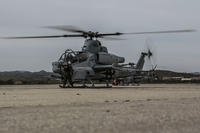Defense Department officials have rejected Congressional efforts to identify the 72 prisoners Afghan President Hamid Karzai has ordered released in a move that has jeopardized U.S. backing for the Afghan government, House Republicans charged Tuesday.
The officials declined to reveal the names at a closed House hearing, said Rep. Howard "Buck" McKeon, R-Calif., chairman of the House Armed Services Committee.
McKeon and Rep. William "Mac" Thornberry, R-Tex., said the failure to divulge the names underlined the disarray in U.S. policy and suggested a lack of commitment by President Obama to U.S. troops in their effort to leave behind a stable and democratic Afghanistan.
In a letter last week, McKeon asked Defense Secretary Chuck Hagel to release the names publicly and also include the prisoners' "affiliation to any terrorist group and a brief description of their terrorist conduct."
"It is critical for the American people to know which dangerous detainees President Karzai intends to release and the threat they pose to the United States," McKeon wrote in the letter.
The 72 detainees were in a group of 88 that were part of a mass transfer of more than 3,000 prisoners last year from U.S. to Afghan jurisdiction.
A review of the 88 prisoners' cases by Afghan intelligence and judicial officials turned up no evidence of wrongdoing for 45 of the detainees, and there was insufficient evidence on another 27, a spokesman for Karzai said last week.
Sixteen other detainees will remain in custody until their cases can be reviewed further, the spokesman said. The Kabul government has yet to say when the prisoner releases might begin.
The U.S. has charged that "ample evidence" exists to conclude that at least seven of the 88 detainees are Afghans suspected of so-called "insider attacks" on U.S. and coalition troops where the detainees wore Afghan military and police uniforms during the attacks.
The U.S. has charged that releases would violate agreements reached last year that allowed the transfer of the 3,000 detainees to Afghan jurisdiction.
The dispute over the prisoners widened the rift between the U.S. and the Karzai government that has stalemated talks on a new Bilateral Security Agreement for the continued presence of U.S. troops in Afghanistan at the end of 2014, when all U.S. and coalition combat forces are scheduled to withdraw.
McKeon and Thornberry said the prisoner issue showed a lack of focus by President Obama on Afghanistan, and they urged him to address the nation on the role the U.S. should play.
Thornberry said Obama had a duty to "publicly support, publicly explain and publicly defend" the efforts of U.S. troops in Afghan, but neither McKeon nor Thornberry offered their own recommendations on what the U.S. should do to stop the prisoner release and seal an agreement for a continued U.S. presence.
"I don't know. We're hoping that doesn't happen," McKeon said of the prisoner release.
McKeon and Thornberry spoke a day after Obama insisted that he still had "faith" in the U.S. mission in Afghanistan.
"What's important is that we got the policy right," Obama said at the White House after a meeting with the Spanish prime minister.
"Whenever you've got men and women that you're sending into harm's way, after having already made enormous investments of blood and treasure in another country, then part of your job as commander-in-chief is to sweat the details on it," he said.





























